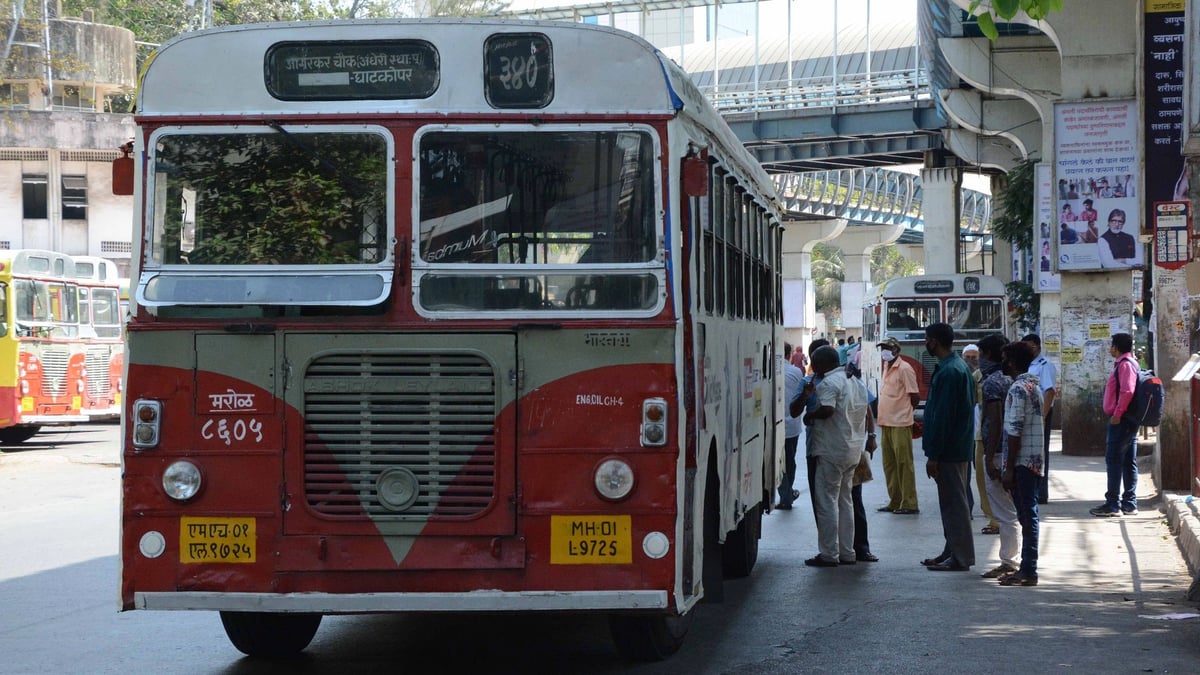Mumbai’s Brihanmumbai Electric Supply and Transport (BEST) undertaking has been grappling with a leadership crisis, as the position of General Manager (GM) remains vacant for almost a month. The vacancy arose after the transfer of Anil Diggikar, the previous GM, and subsequent developments have left the crucial role unoccupied.
However, the Additional Municipal Commissioner now holds an additional charge as BEST GM, but according to sources, the lack of a full-time boss is affecting several activities, especially those related to long-term policies.
Following Diggikar’s transfer, the government issued an order appointing senior IAS officer Harshdeep Kamble as the new General Manager of BEST. However, Kamble’s appointment took an unexpected turn when his posting order was cancelled before he could assume the role. According to sources, Kamble was reportedly reluctant to take charge as the GM of BEST. However When contacted, Kamble said, “You are asking the wrong person. I am not the right person to answer this question. You need to ask the General Administration Department of the state government.”
However union leader feels keep in mind financial and operational problem, no one ready to become the boss of loss making organisation. “BEST is in a huge crisis now; hence, no one is ready to take on the thorny crown of the BEST General Manager,” said Suhas Sawant, a union leader.
Reluctance to Assume the Role
Sources suggest that the General Manager’s post comes with immense responsibility, requiring a visionary leader to tackle issues such as financial losses, declining ridership, and aging infrastructure. The pressure to address these challenges while navigating the political dynamics of the city makes the position less attractive to many officers
“This episode underscores a broader concern regarding the challenges associated with the position of BEST General Manager. Senior IAS officers, known for their administrative expertise, appear hesitant to step into the role, primarily due to the complexities involved in managing the organization. BEST, which is responsible for providing critical public transportation and electricity services to Mumbai, has been facing significant operational and financial challenges in recent years” said an employee of BEST who didn’t want to be quoted.
RJ Singh, former Deputy General Manager of BEST, The key reasons why no senior IAS officer is willing to take on the challenging role of BEST General Manager is due to the organization’s dire shortage of funds, increasing losses, and rising operational and staff costs. The situation is further complicated by the lack of new capital for buying new buses, leading to a drastic decline in BEST’s own fleet and reliance on wet-lease operators. Additionally, the failure to increase bus fares for several years, despite rising operational costs, has resulted in a heavy reliance on funds from the Brihanmumbai Municipal Corporation (BMC).
“The capital and operational expenditure required for BEST to regain its former glory and own its fleet would run into thousands of crores, making it a daunting task for any potential General Manager” further added RJ Singh.
Organizational Impact
The absence of a permanent General Manager has sparked concerns about the future of BEST. Stakeholders worry that the leadership vacuum may hinder crucial decision-making processes, delay reforms, and impact the quality of services offered to Mumbaikars. While interim arrangements may help in the short term, the lack of a full-time GM with a long-term vision could affect the organization’s ability to adapt and grow.
Ravi Raja, a former committee member of BEST said, “The mounting losses, with an accumulated deficit of Rs 6,500 crore, along with a damaged public image due to recent accidents, have put BEST in a critical situation. Its reputation has suffered significantly, and substantial financial support from the BMC is essential for its revival,”.
Ravi Raja further stated that, despite the challenges and the perception of this as a punishment posting for many IAS officials, BEST can overcome its losses and turn around within the next five years with the right initiatives and dedicated effort.
According to another employee of BEST , its requires systemic changes, including making the role more attractive to top-tier bureaucrats. This could involve offering greater autonomy, ensuring adequate support from the government, and providing a clear mandate to implement necessary reforms.
